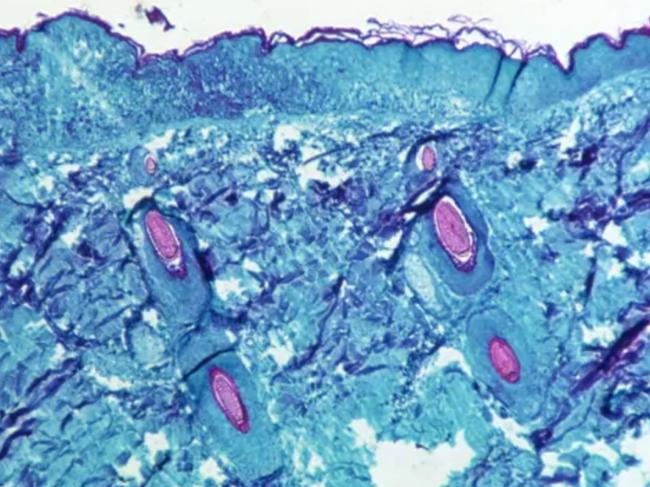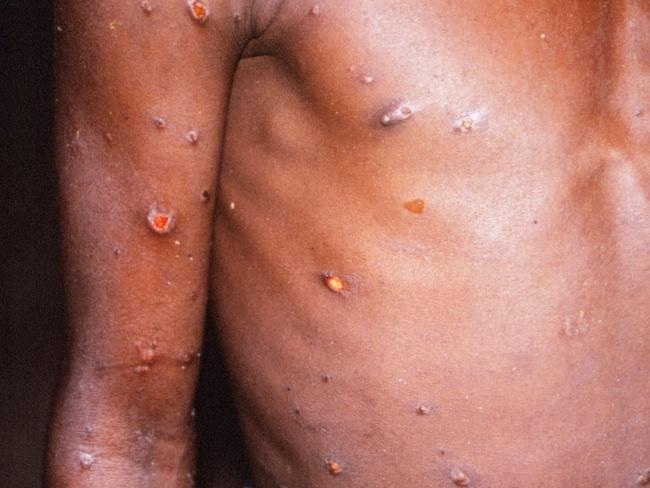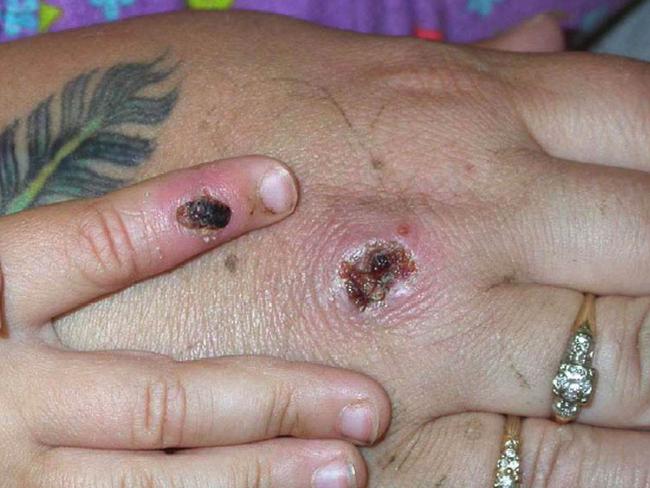WHO expects more monkeypox cases globally: ‘Everyone should be concerned’
The leading health authority says it expects more cases of monkeypox to be detected in countries where the disease is not typically found - including Australia.
Health
Don't miss out on the headlines from Health. Followed categories will be added to My News.
The World Health Organisation (WHO) says it expects to identify more cases of monkeypox as it spreads in countries where the disease is not typically found.
Several cases of monkeypox have been detected in North America and Europe since early May, sparking concern the disease, endemic in parts of Africa, is spreading.
Australia is currently investigating its first case, after a man in his 40s landed in Sydney with a ‘probable’ infection, while health authorities in Canada’s Quebec province are investigating after more than a dozen suspected cases emerged.
As of Saturday, 92 confirmed cases and 28 suspected cases of monkeypox were reported from 12 member states where the virus is not endemic, the UN agency said, adding it will provide further guidance and recommendations in the coming days for countries on how to mitigate the spread of monkeypox.
“Available information suggests that human-to-human transmission is occurring among people in close physical contact with cases who are symptomatic,” the agency said.
Biden: ‘Something to be concerned about’
US President Joe Biden said on Sunday the recent cases of monkeypox identified around the globe were something “to be concerned about”.
“It is a concern in that if it were to spread it would be consequential,” he said in his first public comments about the outbreak.
Stream the latest health news with Flash. 25+ news channels in 1 place. New to Flash? Try 1 month free. Offer ends 31 October, 2022 >

“They haven’t told me the level of exposure yet but it is something that everybody should be concerned about. We’re working on it hard to figure out what we do.”
He added efforts are under way to determine what vaccine might be effective.
In the United Kingdom, the UK Health Security Agency (UKHSA) said new figures would be released on Monday after it registered 20 cases on Friday.
Britain is seeing daily infections of the rare monkeypox virus that are unconnected to any travel to West Africa, where the disease is endemic, a health official said on Sunday.
There have been thousands of human infections in parts of Central and Western Africa in recent years but it is rare in Europe and North America.

Asked if community transmission was now the norm in Britain, UKHSA chief medical adviser Susan Hopkins said “absolutely”.
“We are finding cases that have no identified contact with an individual from West Africa, which is what we’ve seen previously in this country,” she told BBC television.
“We are detecting more cases on a daily basis.”
Hopkins declined to confirm reports that one individual was in intensive care, but said the outbreak was concentrated in urban areas, among gay or bisexual men.
“The risk of the general population remains extremely low at the moment, and I think people need to be alert to it,” she said, adding that for most adults, symptoms would be “relatively mild”.

The first UK case was announced on May 7, in a patient who had recently travelled to Nigeria. The disease is also spreading in Europe and North America.
Monkeypox can be transmitted through contact with skin lesions and droplets of a contaminated person, as well as shared items such as bedding and towels.
The virus is also transmitted to humans from animals, with symptoms very similar to smallpox but less severe clinically.
Symptoms include fever, muscle aches, swollen lymph nodes, chills, exhaustion and a chickenpox-like rash on the hands and face.
They usually clear up after two to four weeks.
There is no specific treatment but vaccination against smallpox has been found to be about 85 per cent effective in preventing monkeypox.
Education Secretary Nadhim Zahawi said the UK government had already started buying up stocks of smallpox vaccine.
“We’re taking it very, very seriously,” he told the BBC.
– With AFP
Originally published as WHO expects more monkeypox cases globally: ‘Everyone should be concerned’


